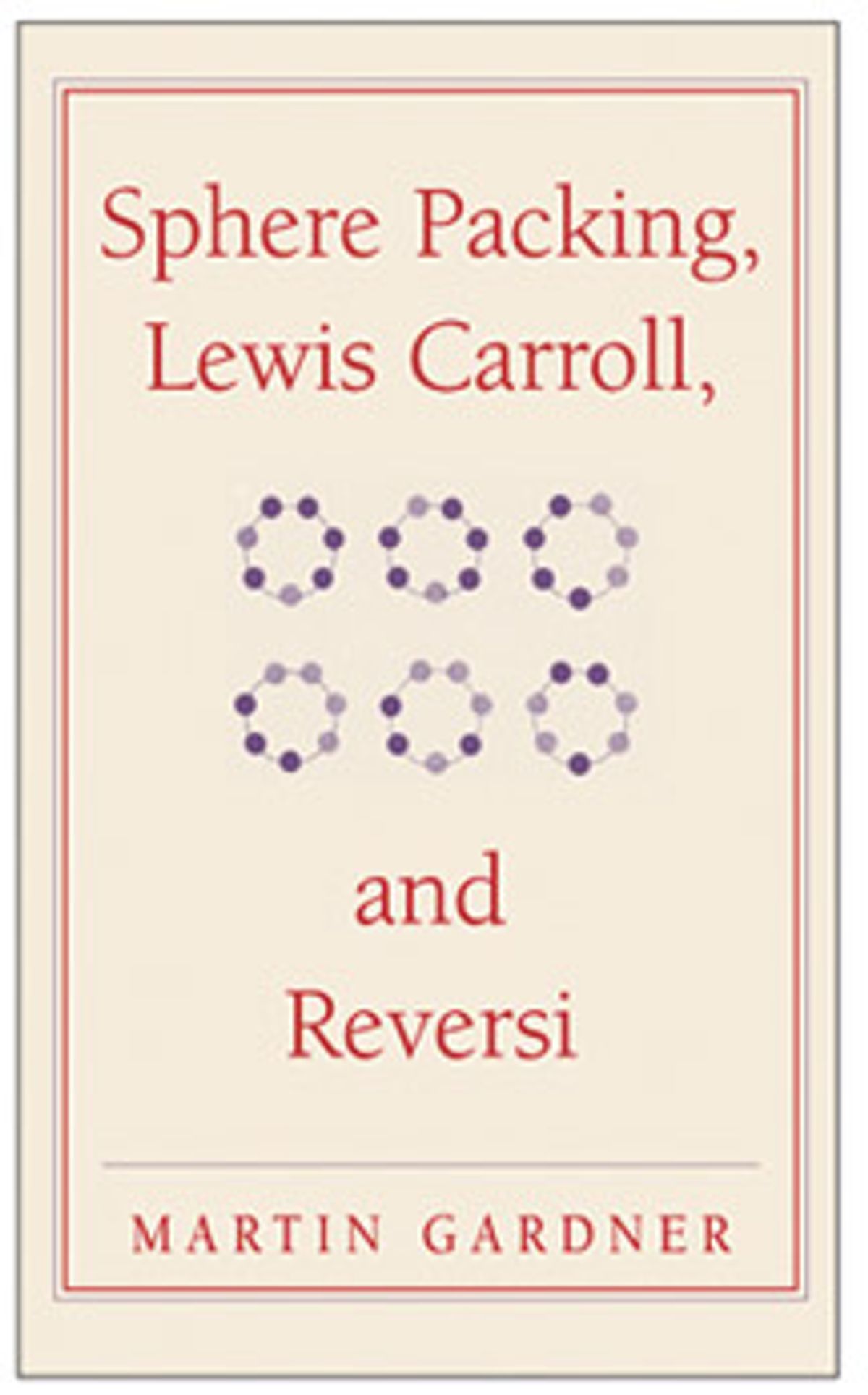Sphere Packing, Lewis Carroll, and Reversi
"If Martin Gardner wrote a cookbook," my editor said, "we'd review it." Sphere Packing, Lewis Carroll, and Reversi isn't a cookbook, but it does include recipes for a couple of tricks with crackers.
For 25 years Gardner wrote the Mathematical Games column in Scientific American. Now Cambridge University Press is republishing them in their entirety. It will take 15 volumes. This, the third, includes 20 columns dating from 1959 to 1961, not limited to the topics of the title. Most chapters contain the original column; solutions to the problems it posed; new material, much of it up to date; and a bibliography.
Three of the columns are collections of puzzles, while the rest concentrate on single topics, such as the binary system, pi, the four-color theorem, and board games. The chapter on sphere packing discusses not only the obvious—how densely they can be packed and how this relates to subjects like crystallography—but also the less well-known question of how sparse a rigid packing can be. Lewis Carroll gets a chapter to himself, not just about his interest in mathematics and logic but also his word games; the additional material includes some results found by computer that would not have been possible when the column was first published.
A chapter on group theory and braiding ends with the intriguing assertion that a game involving shield shapes joined by strings proves that subatomic particles can have only half or whole quanta of spin. Pure mathematicians will love a chapter on ellipses and the theorems of H.S.M. Coxeter. A discussion of the game reversi is preceded by a brief mention of the ancient Greek game of rithmomachy, which by all accounts seems the most unplayable board game ever. A chapter on mathemagic (mathematical-based magic tricks) includes the cracker tricks.
Those of us who eagerly awaited our monthly fix of Mathematical Games the first time around will welcome this update, and those who missed it will enjoy a wonderful stroll through recreational mathematics. Both sorts will surely read with pencil and paper near at hand. —Clive Feather
About the Author
Clive Feather is an Internet regulatory expert and an amateur historian of the London Underground.

